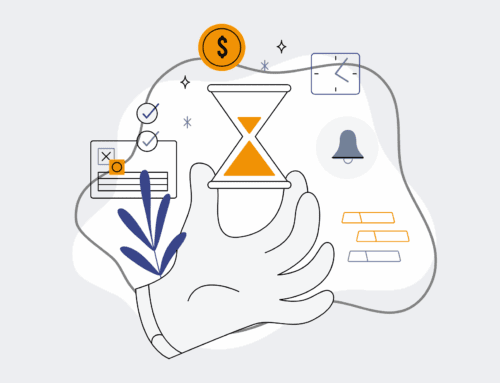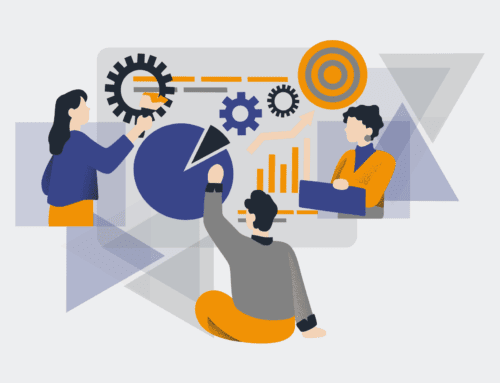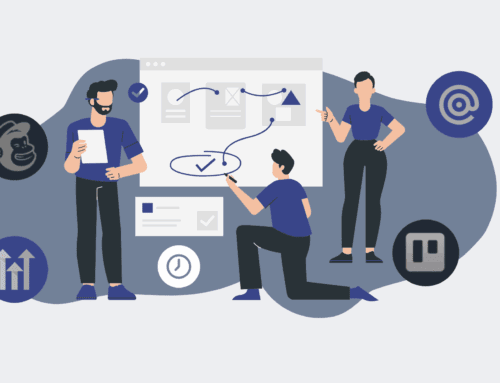5 Strategic Ways AI is Revolutionizing HR and Recruiting for Unprecedented Efficiency
In today’s fiercely competitive talent landscape, HR and recruiting leaders face an unrelenting barrage of challenges. From navigating talent shortages and managing an overwhelming volume of applications to ensuring a positive candidate experience and retaining top performers, the demands are higher than ever. Traditional, manual processes are simply no longer sufficient to keep pace, leading to increased operational costs, recruiter burnout, and missed opportunities to secure critical talent. The pressure to do more with less, while simultaneously elevating the strategic impact of HR, is immense. This isn’t just about finding people; it’s about finding the *right* people, faster, more cost-effectively, and with a future-proof strategy.
At 4Spot Consulting, we understand that true efficiency comes from intelligent automation, not just busywork. This is precisely where Artificial Intelligence (AI) emerges as a transformative force, moving HR and recruiting from reactive to proactive, from administrative to strategic. AI isn’t just a buzzword; it’s a practical, implementable suite of tools capable of dismantling bottlenecks, eliminating human error, and freeing up your most valuable assets – your people – to focus on high-impact initiatives. For HR and recruiting professionals, understanding and strategically adopting AI isn’t optional; it’s a critical differentiator that unlocks unprecedented efficiency and positions your organization for sustainable growth. Let’s explore five strategic ways AI is already reshaping the future of talent acquisition and management.
1. Intelligent Candidate Sourcing and Personalized Engagement
The days of manual resume parsing and broad-brush job postings are rapidly fading. AI-powered sourcing tools are fundamentally transforming how organizations identify and attract top talent. These advanced platforms go far beyond simple keyword matching; they leverage natural language processing (NLP) and machine learning algorithms to scan vast data pools – including public profiles, professional networks, and proprietary databases – to identify candidates whose skills, experience, and even potential cultural fit align with specific job requirements. Imagine a system that can not only find candidates with specific technical skills but also assess their demonstrated collaboration abilities or leadership potential based on their digital footprint. This dramatically expands your talent pool beyond traditional applicants, unearthing passive candidates who might be an ideal fit but aren’t actively looking.
Furthermore, AI enables hyper-personalized candidate engagement. Once potential candidates are identified, AI can craft tailored outreach messages, recommending relevant roles and showcasing company benefits that resonate with individual profiles. This moves beyond generic templates, creating a more engaging and positive initial interaction. Recruiters, instead of spending hours trawling through profiles, can focus their energy on building genuine relationships with pre-qualified candidates. This strategic shift means less time on repetitive search tasks and more time on the human element of recruiting, ultimately accelerating the time-to-hire for critical roles and improving the quality of your talent pipeline. It’s about working smarter, not harder, to bring the best talent into your organization.
2. Automated Resume Screening and Bias Reduction
The sheer volume of applications for any given role can be staggering, often leading to a bottleneck in the initial screening phase. Human recruiters, faced with hundreds or even thousands of resumes, are prone to fatigue and unconscious biases, which can inadvertently lead to overlooking qualified candidates or perpetuating homogenous hiring practices. AI offers a powerful solution to this pervasive challenge. Automated resume screening tools can rapidly parse and analyze resumes with unparalleled speed and consistency, extracting key information such as skills, experience, education, and achievements. These systems can then score and rank candidates against predefined criteria, ensuring that the most relevant applications rise to the top of the pile.
Crucially, AI’s ability to operate on objective criteria significantly reduces human bias in the early stages of the hiring process. By focusing strictly on the requirements of the role and eliminating subjective interpretations, AI can help create a more equitable and diverse candidate shortlist. This doesn’t mean AI is flawless; it must be trained on diverse datasets and continuously monitored for embedded biases from historical data. However, when implemented thoughtfully, AI empowers HR teams to make data-driven decisions that are fairer and more efficient. The time saved from manually reviewing countless resumes allows recruiters to dedicate their expertise to higher-value activities, such as deeper candidate evaluations, engaging interviews, and strategic talent discussions, thereby enhancing overall recruiting effectiveness and the candidate experience.
3. Enhancing Candidate Experience with AI Chatbots and Virtual Assistants
In an age where instant gratification is the norm, candidates expect immediate answers and seamless communication throughout the application process. Delays or lack of clear information can lead to high drop-off rates, causing organizations to lose promising talent. AI-powered chatbots and virtual assistants are revolutionizing the candidate experience by providing 24/7 support and personalized interactions. These intelligent systems can answer frequently asked questions about job descriptions, company culture, benefits, and the application process, freeing up HR teams from repetitive administrative inquiries. This ensures candidates receive timely and accurate information, fostering a positive perception of the organization right from the start.
Beyond answering questions, AI assistants can streamline critical logistical tasks. They can facilitate automated interview scheduling, sending reminders and handling rescheduling requests with ease, significantly reducing the administrative burden on recruiters and candidates alike. They can also provide real-time updates on application status, keeping candidates informed and engaged without requiring human intervention for every inquiry. This continuous, immediate interaction not only improves candidate satisfaction but also significantly reduces the time-to-fill for positions. By automating these touchpoints, HR professionals can allocate their valuable time to more complex and empathetic interactions, such as conducting in-depth interviews, negotiating offers, and building meaningful relationships. The result is a more efficient process, a happier candidate pool, and a stronger employer brand, all contributing to a more competitive talent acquisition strategy.
4. Predictive Analytics for Talent Management and Retention
Beyond the initial hiring phase, AI offers profound capabilities in managing and retaining an organization’s most valuable asset: its existing talent. Predictive analytics, driven by AI, can analyze vast internal datasets – including performance reviews, engagement surveys, tenure data, learning management system interactions, and even communication patterns – to identify patterns and predict future outcomes. This sophisticated analysis moves HR from a reactive posture to a proactive one. For instance, AI can identify “flight risks” – employees who are statistically more likely to leave the company – enabling HR and management to intervene early with targeted retention strategies such as mentorship programs, personalized development opportunities, or adjustments to roles and responsibilities. This proactive approach can significantly reduce costly employee turnover, which impacts not only recruitment costs but also team productivity and institutional knowledge.
Furthermore, AI can optimize talent development by identifying skill gaps within the workforce and recommending personalized learning paths for employees. By understanding individual strengths, weaknesses, and career aspirations, AI can suggest relevant training modules, certifications, or internal projects that foster growth and align with both individual and organizational goals. This ensures that employees feel valued and have clear avenues for advancement, boosting engagement and loyalty. For high-growth businesses, leveraging AI for talent management means not just reacting to problems but anticipating them, building a more resilient, skilled, and satisfied workforce that is better prepared to meet future business demands. This strategic application of AI directly contributes to a more stable, productive, and adaptable organizational structure.
5. AI for Personalized Onboarding and Training
The journey of an employee doesn’t end with a signed offer letter; a robust and engaging onboarding experience is critical for long-term success and retention. Many organizations struggle with generic, one-size-fits-all onboarding processes that can leave new hires feeling disconnected or overwhelmed. AI offers a powerful solution by enabling hyper-personalized onboarding and continuous training. Imagine an AI system that, based on a new hire’s role, department, previous experience, and even preferred learning style, automatically curates a tailored onboarding journey. This could include personalized checklists, relevant training modules, introductions to key colleagues, and access to necessary resources, all delivered through an intuitive platform.
AI can also play a vital role in adaptive learning and continuous development. By analyzing an employee’s performance data, skill assessments, and career goals, AI-powered learning platforms can recommend specific courses, micro-learning modules, or mentorship opportunities. The system can adapt content based on the employee’s progress and understanding, ensuring that training is always relevant and effective. This reduces the time-to-proficiency for new hires and keeps existing employees up-to-date with evolving industry demands. For HR teams, this automation frees up significant administrative time, allowing them to focus on high-touch, human-centric aspects of development and support. The result is a more engaged workforce that integrates faster, continuously grows their skills, and contributes more effectively to the company’s strategic objectives, reducing human error and increasing scalability from day one.
The integration of AI into HR and recruiting is not merely a technological upgrade; it’s a strategic imperative that redefines how organizations attract, manage, and retain their talent. By automating repetitive tasks, enhancing decision-making with data, and personalizing the employee journey, AI empowers HR professionals to shift their focus from administrative burdens to strategic initiatives that drive business growth. The future of HR is one where human expertise is augmented by intelligent systems, fostering a more efficient, equitable, and engaged workforce. Embracing these AI applications means creating a more agile, resilient, and competitive organization ready to thrive in the dynamic landscape of modern business. At 4Spot Consulting, we specialize in helping high-growth B2B companies strategically implement these AI and automation solutions, saving you 25% of your day and ensuring your talent strategy is future-proof.
If you would like to read more, we recommend this article: The Future of AI in Business: A Comprehensive Guide to Strategic Implementation and Ethical Governance









